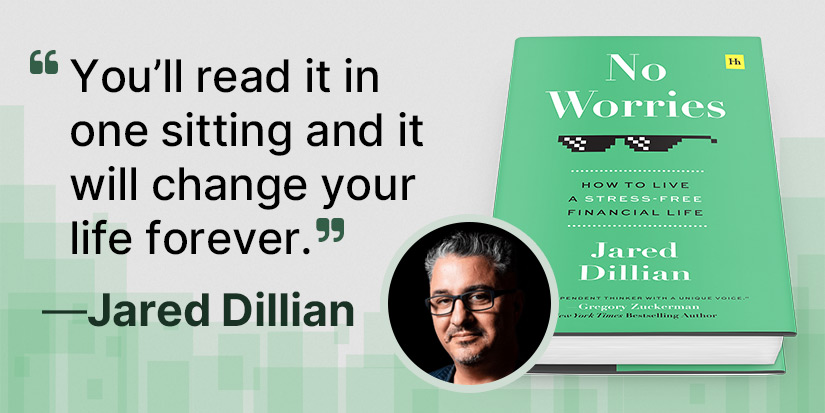
Semper Gumby
-
 Jared Dillian
Jared Dillian
- |
- September 20, 2018
- |
- Comments
I have a huge desire for liquidity. Above and beyond the discussions we already had about cash.
Back in 2003, I was in a conference room at Lehman talking to some very aggressive insurance salesmen. They wanted to sell me some very complex life insurance policies.
Now, I am a smart guy, and I could not figure out what the hell they were talking about. The stuff they were trying to sell me was just too complicated. Rule number one: don’t buy stuff you can’t understand. Likely they didn’t understand it either, or at least, the hedging that went on behind the scenes.
I was asking them for clarification. “So, I give you my money, and then… I can’t get my money?”
“But you can borrow against the policy.”
“But I can’t get my money?” I asked.
“Well, technically, you can access it anytime you want—“
“Smell you later,” I said, and walked out of the conference room.
I have never understood the point of whole life insurance. Anything you can’t turn into cash is not an investment. It is a bad deal.
I understand the point of term life insurance. I carry a small amount of it to pay for a tricked-out, luxury coffin if I kick the bucket. There is no reason to have this ballooning whole life policy—my wife will inherit everything I have, which is substantial, so why does she need more?
To my readers with whole life insurance policies: please, tell me how your life is enriched by this.
Also, I used to sit next to the guys who traded the derivatives that formed the basis for insurance products, like variable life and annuities. They had a very profitable business with fat margins. Meanwhile, I was making 2 cents a share, if I was lucky. I wore suits with holes in the ass. The structured derivatives guys did not. You get my drift.
There is a lot of edge in insurance, which is another way of saying profit margin, both to the insurance company and the bank that hedges the trade. Complexity is the enemy.
|
Real Estate
I had a real estate investor in my office once. As I always do, I had my portfolio up on my Bloomberg screen.
He was looking at the portfolio. I said, “I can be out of that whole thing and into cash in about 90 seconds.”
Like what you're reading?
Get this free newsletter in your inbox every Thursday! Read our privacy policy here.
I asked him, “How long will it take you to get out of all your real estate?”
“About six months to a year,” he admitted.
I have a flair for the dramatic. Never have I needed to be out of my portfolio in 90 seconds, nor do I ever anticipate I will. Still, it is a nice feeling. It is not a nice feeling to own ten houses I can’t sell in a declining market.
I have a tough time with real estate investing. As we mentioned last week, it isn’t exactly passive income. And I am scared to death of the lack of liquidity.
Maybe I am just a big chicken. After all, plenty of people invest in real estate and are successful at it. Not many people get rich being fearful.
So I admit—this is a personal bias of mine. Lots of people seem to do just fine with whole life insurance. Lots of people seem to do just fine with real estate. I have a desire for optionality. And tying up your cash restricts your options.
Because, in the sage words of Joaquin Andujar, “you never know.”
What Would You Need the Money For?
Not everyone has the greatest health insurance in the world. Not everyone has insurance!
I tore my ACL and meniscus in 2013. Had surgery, which cost $30,000. I paid $5,000 out of pocket, but a big health expenditure can cost a lot more. I am not even sure what the seven months of physical therapy cost. Probably a lot. Insurance covered it.
Bottom line: you need money around in case of emergencies.
Say you are vacationing somewhere and you see an amazing house. Your dream house. You start doing the mental mathematics about what it would take to own this thing. You figure you need to come up with a $300,000 down payment. You have the assets, but it is all tied up in real estate and whole life!
You regret that one for years and years.
Or, the most painful one of all: your brother-in-law wants you to invest in his business.
Oh, the old brother-in-law investments. 9 times out of 10, these turn out to be complete bombs and generate lots of ill feelings. Sometimes the brother-in-law absconds with the money.
But occasionally the brother-in-law is sitting on a good idea. I know of a couple that invested in a brother-in-law’s microbrew twenty years ago. It grew, and grew, and grew, and eventually it got bought by Anheuser-Busch for a princely sum. They are wealthy people now. They were not before.
Like what you're reading?
Get this free newsletter in your inbox every Thursday! Read our privacy policy here.
THERE IS NOTHING IN THE WORLD WORSE THAN NOT HAVING THE LIQUIDITY TO TAKE ADVANTAGE OF AN OPPORTUNITY.
And that opportunity might not even be an investment. It might be something fun: a suit, a watch, a piece of artwork.
I’m not saying life insurance or real estate is forbidden, but if you do that, make sure you have some cash on the side.
Thus endeth the lesson.
Also
I had a couple of emails from people saying they miss the market commentary. There’s a lot more to be said about personal finance, so you can expect this series to run for a while.
If you want to read about cannabis bulls, trend following, corporate credit, probably my favorite ETF in the world, and other stuff, you can do so in the latest issue of ETF 20/20, published on Tuesday. Give it a try for $8.25 an issue.
subscribers@mauldineconomics.com
Tags
Suggested Reading...
|
|

 Jared Dillian
Jared Dillian

